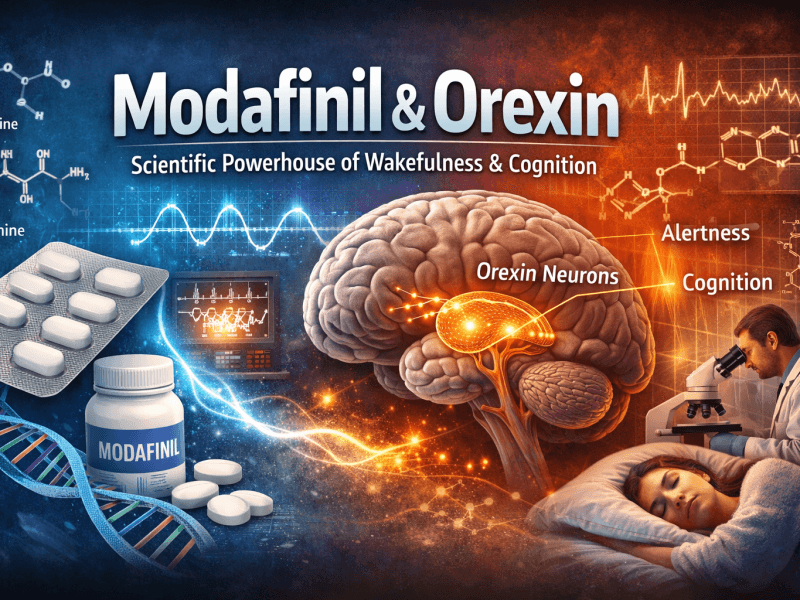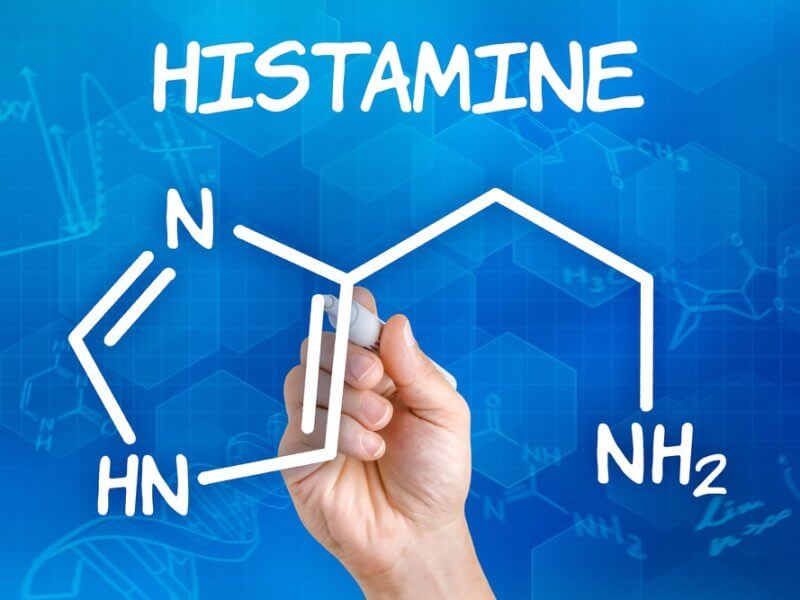Introduction to Cognitive Enhancers
In today’s fast-paced world, many people search for safe and effective ways to boost focus, memory, and productivity. Cognitive enhancers, also known as nootropics, have become popular among students, entrepreneurs, and professionals. Among these substances, modafinil and nicotine stand out as two of the most talked-about performance boosters.
While each substance on its own has distinct effects, some users explore the idea of combining them for greater synergy. But does this pairing really work, and what are the risks and side effects? Let’s explore the evidence.
What is Modafinil?
History and Medical Uses of Modafinil
Modafinil was first developed in France in the 1970s and approved in the 1990s as a treatment for narcolepsy, shift work sleep disorder, and sleep apnea related fatigue. Today, it’s prescribed worldwide for sleep-related conditions but is also used “off-label” as a cognitive enhancer.
Mechanism of Action: How Modafinil Works
Unlike traditional stimulants like amphetamines, modafinil works in a more subtle way. It increases dopamine, norepinephrine, histamine, and orexin in the brain. These neurotransmitters are linked to wakefulness, focus, and motivation.
What is Nicotine?
Nicotine Beyond Smoking: Cognitive Applications
Nicotine is often associated with cigarettes, but in controlled doses (such as nicotine gum, lozenges, or patches), it’s been studied for its attention-boosting and memory-enhancing effects. Unlike tobacco smoke, purified nicotine may provide cognitive benefits without the same degree of harm.
Mechanism of Action: How Nicotine Affects the Brain
Nicotine binds to nicotinic acetylcholine receptors (nAChRs), stimulating the release of dopamine and acetylcholine. This leads to improved alertness, reaction time, and short-term memory.
Why Combine Nicotine and Modafinil?
Reported Benefits of the Combination
Some biohackers claim that stacking nicotine with modafinil produces:
- Enhanced focus and sustained attention
- Improved working memory
- Increased motivation for prolonged tasks
- Reduced fatigue and mental fog
Potential Synergistic Effects
While modafinil promotes wakefulness and long-term focus, nicotine may provide a sharper short-term boost in attention. Together, they might balance each other, creating a sustained yet alert mental state.
Risks of Using Nicotine and Modafinil Together
Physical Health Risks
- Elevated blood pressure and heart rate
- Risk of cardiovascular strain
- Possible sleep disturbances when taken late in the day
Mental Health Considerations
- Heightened anxiety or restlessness
- Potential for irritability and mood swings
- Interference with natural sleep cycles
Addiction and Dependency Risks
Nicotine is highly addictive. Even in small doses, prolonged use can lead to dependency, making it difficult to stop. Modafinil, while less addictive, can still lead to psychological reliance when overused.
Side Effects of Nicotine
- Nausea and stomach upset
- Dizziness and headaches
- Increased heart rate
- Tolerance development
Side Effects of Modafinil
- Insomnia if taken late in the day
- Headaches and dehydration
- Nervousness or mild anxiety
- Rare but serious skin reactions (Stevens-Johnson syndrome)
Scientific Research on Nicotine and Modafinil Synergy
While anecdotal reports are common, peer-reviewed research on combining nicotine and modafinil is limited. Studies do confirm each substance’s independent effects on attention, vigilance, and cognition. However, rigorous trials on their combined use are scarce. For more scientific details, see PubMed research database.
Safe Usage Guidelines and Best Practices
Dosage Considerations
- Modafinil: 100-200 mg daily (morning use recommended)
- Nicotine: 1-2 mg via gum/lozenges (avoid smoking/vaping)
Stacking Strategies Used in Biohacking
- Take modafinil in the morning
- Use nicotine sparingly for short bursts of focus
- Avoid combining with caffeine in high doses to reduce overstimulation
Alternatives to Nicotine and Modafinil Combination
Natural Cognitive Enhancers
- Caffeine + L-theanine for balanced focus
- Ginkgo biloba for memory support
- Rhodiola rosea for reduced fatigue
Lifestyle-Based Cognitive Boosters
- Regular exercise
- Consistent sleep schedule
- Nutrient-rich diet (omega-3s, B vitamins)
- Mindfulness meditation
FAQ
1. Can nicotine and modafinil be taken safely together?
In small, controlled doses, some users report benefits, but risks include addiction, anxiety, and cardiovascular strain.
2. Is nicotine without smoking harmful?
Purified nicotine (gum, patches) is far safer than smoking, but it still carries addiction risks.
3. How long does modafinil last in the body?
Modafinil’s half-life is about 12–15 hours, meaning effects can last most of the day.
4. Can nicotine enhance memory?
Yes, studies suggest nicotine can improve short-term memory and reaction time, but effects are temporary.
5. Are there safer alternatives?
Yes, caffeine with L-theanine, regular exercise, and proper sleep are natural ways to boost cognition.
6. Is modafinil legal to use as a study drug?
It’s prescription-only in most countries. Using it without medical supervision may be illegal.
Conclusion
The idea of stacking nicotine and modafinil is intriguing for those chasing peak mental performance. While users report sharper focus and prolonged productivity, the combination isn’t without risks. Addiction, anxiety, and cardiovascular strain make it a strategy that should be approached with caution.
If you’re exploring nootropics, consider starting with safer alternatives like caffeine with L-theanine, better sleep hygiene, and mindfulness practices. Ultimately, boosting cognition sustainably means finding a balance that supports both brain power and long-term health.
‼️ Disclaimer: The information provided in this article about modafinil is intended for informational purposes only and is not a substitute for professional medical consultation or recommendations. The author of the article are not responsible for any errors, omissions, or actions based on the information provided.
References:
- U.S. Food and Drug Administration. PROVIGIL. U.S. Department of Health and Human Services. https://www.accessdata.fda.gov/drugsatfda_docs/label/2015/020717s037s038lbl.pdf . 2015
- Ballon JS, Feifel D. A systematic review of modafinil: potential clinical uses and mechanisms of action. J Clin Psychiatry. 2006
- Willavize, S. A., Nichols, A. I., & Lee, J. Population pharmacokinetic modeling of armodafinil and its major metabolites. https://doi.org/10.1002/jcph.800 . 2016
- Gilleen, J., Michalopoulou, P. G., Reichenberg, A., Drake, R., Wykes, T., Lewis, S. W., & Kapur, S. Modafinil combined with cognitive training is associated with improved learning in healthy volunteers a randomised controlled trial. European Neuropsychopharmacology. 529–539. https://doi.org/10.1016/j.euroneuro.2014.01.001 . 2014
- McClellan, K. J., & Spencer, C. M. Modafinil: A review of its pharmacology and clinical efficacy in the management of narcolepsy. CNS Drugs, 311–324. https://doi.org/10.2165/00023210-199809040-00006 . 1998.
- Greenblatt, K., Adams, N. Modafinil. StatPearls Publishing. https://www.ncbi.nlm.nih.gov/books/NBK531476/ . 2025
- Oliva Ramirez A, Keenan A, Kalau O, Worthington E, Cohen L, Singh S. Prevalence and burden of multiple sclerosis-related fatigue: a systematic literature review. https://doi.org/10.1186/s12883-021-02396-1 . 2021.
- Ciancio A, Moretti MC, Natale A, Rodolico A, Signorelli MS, Petralia A. Personality Traits and Fatigue in Multiple Sclerosis: A Narrative Review. Journal of Clinical Medicine. https://doi.org/10.3390/jcm12134518 . 2023
- Mereu, M., Bonci, A., Newman, A. H., & Tanda, G. The neurobiology of modafinil as an enhancer of cognitive performance and a potential treatment for substance use disorders. https://doi.org/10.1007/s00213-013-3232-4 . 2013
- Natsch, A. What makes us smell: The biochemistry of body odour and the design of new deodorant ingredients. CHIMIA International Journal for Chemistry. https://doi.org/10.2533/chimia.2015.414 . 2015
- Hamada, K., Haruyama, S., Yamaguchi, T., Yamamoto, K., Hiromasa, K., Yoshioka, M., Nishio, D., & Nakamura, M. What determines human body odour? Experimental Dermatology. https://doi.org/10.1111/exd.12380 . 2014


